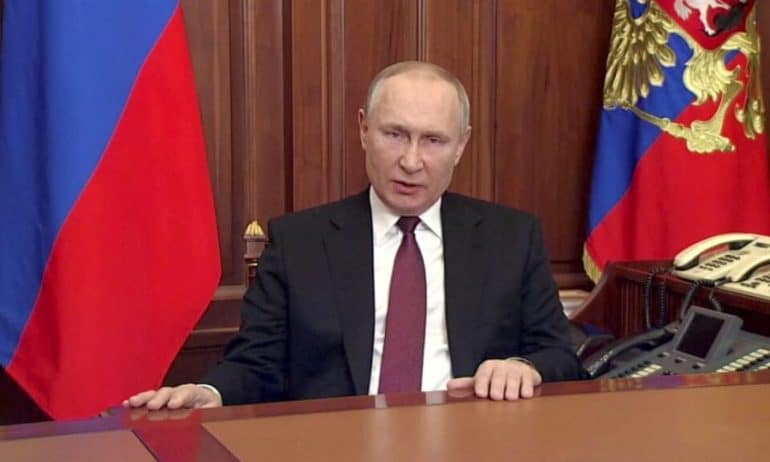Russia has been in official bankruptcy since yesterday, as the committee in charge ruled on the country's inability to service interest and nominal values of its bonds, totaling $ 1,9 million. Goldman Sachs, Bank of America, JPMorgan Chase & Co., Pacific Investment Management and Elliot Management were among the 12 members of the Credit Derivatives Committee who voted in favor of "bankruptcy", while Citi Bank was differentiated.
With their decision, they pave the way for the activation of the so-called cds, the insurance premiums of the Russian debt of Russia against non-service. This means that $ 2,5 billion in payments will be made to investors insured against the risk of defaulting on Russian debt. The beneficiaries are many, as seeing the prospect of profit, investors flocked to the Russian debt insurance premiums after the Russian invasion of Ukraine and the emerging prospect of technical bankruptcy of the country as a result of sanctions.
For Russia, the fact that it is in bankruptcy primarily means a long period of litigation and controversy, as Moscow will try to convince its creditors that it is not a bankruptcy if it has the resources to service its debt, but also willingness to do so.
As recently stated by Adam Solovsky, a partner of the law firm Reed Smith, this argument has already been invoked by Moscow, while it is a fact that the current situation has nothing to do with a usual bankruptcy. He even stressed that in a normal bankruptcy, the country under this regime is trying to restructure its debt in agreement with its international creditors. As he emphasizes, this can not happen in the case of Russia, because the sanctions do not allow anyone to cooperate with the Russian authorities or any Russian body.
Perhaps the most serious impact that technical bankruptcy will have on Russia will be its complete exclusion from the international financial markets. According to Timothy As, executive of BlueBay Asset Management, this means that the country remains "without capital, without investment and without growth." The same economist and analyst adds that this "will lower the standard of living in Russia, which will bleed capital and brains, and the Russians will be poorer for a long time because of Putin." He stressed that Russia's international isolation from the world economy would be further intensified, while the country would lose its superpower status and be downgraded to a level similar to that of North Korea.
The main source of concern for Moscow is, after all, the debts of Russian companies. Private sector debt totals about $ 150 billion, including loans and bonds, and clearly exceeds Russia's foreign debt, which does not exceed $ 20 billion. Russian oil and gas companies will probably be able to borrow, at least those exempt from sanctions, but the collapse of Russia's foreign trade will hurt its revenues and undermine the financial stability of its banks.
Judging by what has happened in other bankrupt countries, for example in the case of Argentina, Russia may also face foreclosures on its assets abroad by investors seeking compensation.
Of course, this is already happening in a sense because the assets of Russian oligarchs who are subject to Western sanctions are being confiscated while its foreign exchange reserves have been "frozen". According to a Financial Times article, Russia has a long history of the longest bankruptcy period in history.
With the October Revolution he refused to service the debt of tsarist Russia and thus remained in a state of bankruptcy until the collapse of the Soviet Union and a few years later. He decided to repay this debt only in 1996. The British newspaper emphasizes that it would not be in anyone's interest to repeat something similar now. Economic figures fear that Russia's bankruptcy could have unintended consequences for the financial systems of Western economies. When it went bankrupt in 1998, failing to service its domestic currency debt, it led to the collapse of many heavily leveraged hedge funds.
Source: kathimerini.gr
